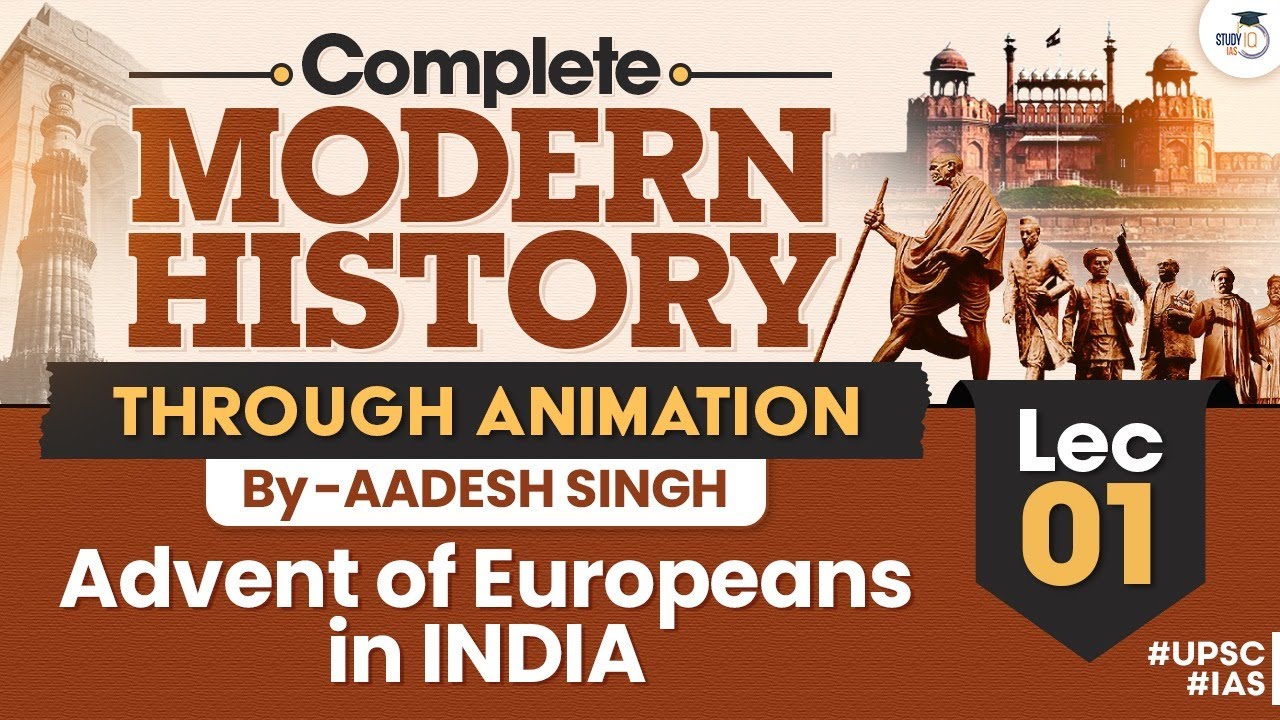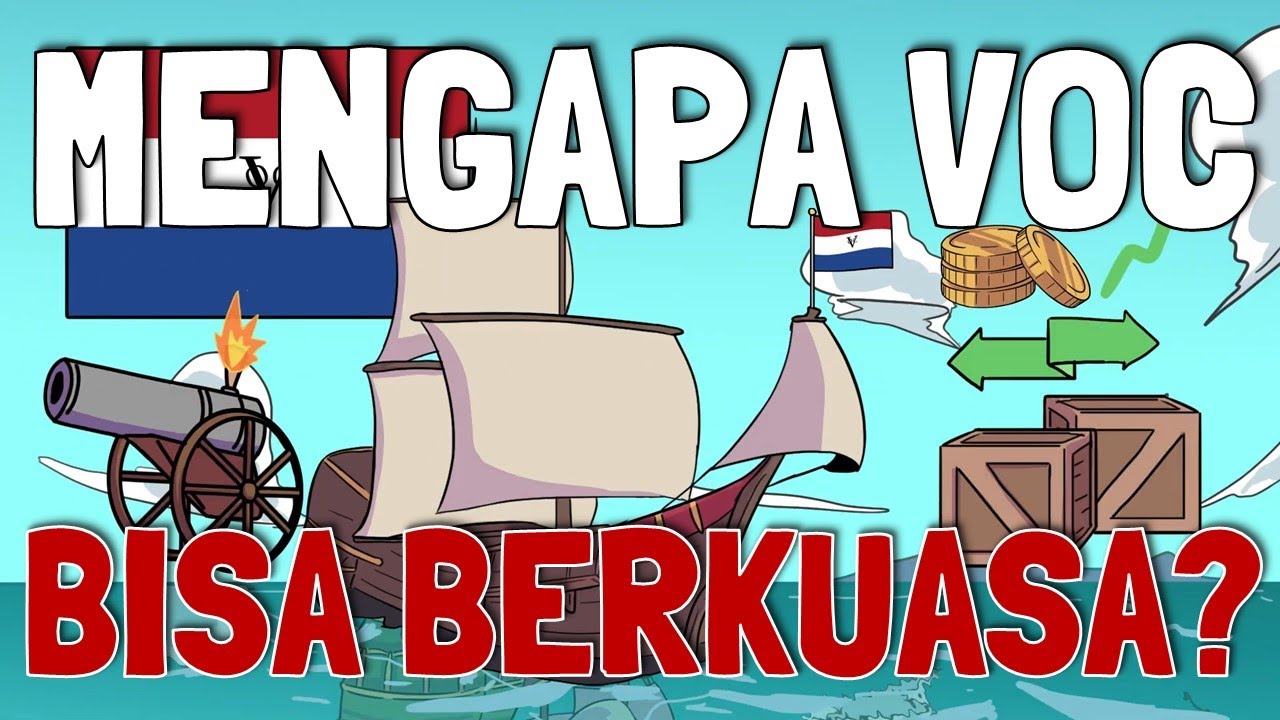Roots of the Empire Part 1 || 400 Years: Britain and India || Episode 2
Summary
TLDRBy 1750, the East India Company, after 150 years of trade, wielded significant commercial and political power in India. Key figures like Major General Robert Clive and Warren Hastings capitalized on the decline of the Mughal Empire and rival European companies to establish British dominance. Clive's military successes, particularly at the Battles of Plassey and Buxar, solidified the EIC's control over India. Despite criticism for exploitation, the EIC's transition from trade to rule was marked by a series of military and administrative conquests, leading to the British Raj.
Takeaways
- 🏛️ By 1750, the East India Company had been trading for nearly 150 years and had substantial commercial and political influence.
- 🔄 The transition from trading to ruling was influenced by the decline of the Mughal Empire and competition with the Dutch and French East India Companies.
- 👤 Major General Robert Clive and Warren Hastings were key figures in the Company's transformation into a ruling power.
- 🏰 Robert Clive's military successes, particularly in the Battles of Plassey and Buxar, significantly contributed to the Company's control over India.
- 🤔 Clive faced criticism for his methods in India, which were seen as more aggressive compared to his successor, Warren Hastings.
- 🌳 Hastings is credited with attempting to integrate and respect Indian cultural roots, despite still overseeing a company that exploited the country.
- 🛡️ The East India Company's military techniques, such as effective use of artillery and bayonets, gave them an advantage over larger but less trained Indian forces.
- 🏹 The Battle of Buxar was a turning point where the Company defeated a coalition of Indian states, solidifying their power.
- 🏺 The Company's involvement in Indian politics deepened due to the fragmentation of the Mughal Empire, allowing them to take over regions one by one.
- 🌍 The East India Company expanded from a trading post to controlling nearly half of Hindustan, marking a significant shift in their operations and ambitions.
- 💸 Clive's actions, though criticized, were indicative of the 18th-century mindset of adventure and ambition, and he played a pivotal role in establishing British rule in India.
Q & A
How long had the East India Company been trading by 1750?
-By 1750, the East India Company had been trading for nearly 150 years.
What significant changes did the East India Company undergo during its existence?
-The East India Company transitioned from a trading entity to a ruling power, significantly influenced by the decline of the Mughal Empire and the competition with the Dutch and French East India Companies.
Who were Major General Robert Clive and Warren Hastings, and what roles did they play in the East India Company's history?
-Major General Robert Clive was a prominent military leader who rose through the ranks with successful battles and became a key figure in establishing British rule in India. Warren Hastings, his successor, is credited for trying to bring cultural roots back and was in charge of a company that was increasingly involved in Indian politics.
What were the Battles of Plassey and Buxar, and why were they significant?
-The Battles of Plassey and Buxar were military engagements led by Robert Clive that resulted in the East India Company gaining control over significant territories in India, thereby establishing a stronghold for nearly 50 years.
How did the decline of the Mughal Empire impact the East India Company's operations in India?
-The decline of the Mughal Empire led to a fragmented political landscape in India, which the East India Company exploited by using advanced European military techniques to take over different regions one by one.
What was the role of the Battle of Buxar in the East India Company's expansion?
-The Battle of Buxar was a significant victory for the East India Company, which allowed them to consolidate their power and influence in India, leading to an extension of British administrative and military control.
How did the East India Company's involvement in Indian politics lead to the Indian Rebellion?
-The East India Company's increasing involvement in Indian politics and the exploitation of the country's resources led to widespread discontent, culminating in the Indian Rebellion as a reaction against their rule.
What was the significance of the Battle of Plassey in the context of British power in India?
-The Battle of Plassey marked a key moment in the extension of British power in India, setting the stage for British military and administrative dominance for the next century.
How did Robert Clive's military campaigns contribute to the establishment of British rule in India?
-Robert Clive's successful military campaigns, particularly the Battle of Plassey, allowed the East India Company to defeat local rulers and establish British authority, which eventually led to the formation of the British Raj.
What was the role of the Mughal Emperor Shah Alam and the Nawab of Bengal in the East India Company's history?
-The Mughal Emperor Shah Alam and the Nawab of Bengal attempted to challenge the East India Company's power in the Battle of Buxar, but their defeat solidified the Company's control over large parts of India.
Outlines

Dieser Bereich ist nur für Premium-Benutzer verfügbar. Bitte führen Sie ein Upgrade durch, um auf diesen Abschnitt zuzugreifen.
Upgrade durchführenMindmap

Dieser Bereich ist nur für Premium-Benutzer verfügbar. Bitte führen Sie ein Upgrade durch, um auf diesen Abschnitt zuzugreifen.
Upgrade durchführenKeywords

Dieser Bereich ist nur für Premium-Benutzer verfügbar. Bitte führen Sie ein Upgrade durch, um auf diesen Abschnitt zuzugreifen.
Upgrade durchführenHighlights

Dieser Bereich ist nur für Premium-Benutzer verfügbar. Bitte führen Sie ein Upgrade durch, um auf diesen Abschnitt zuzugreifen.
Upgrade durchführenTranscripts

Dieser Bereich ist nur für Premium-Benutzer verfügbar. Bitte führen Sie ein Upgrade durch, um auf diesen Abschnitt zuzugreifen.
Upgrade durchführenWeitere ähnliche Videos ansehen

The British Arrival in India| Digital Comic |l O'levels| Pakistan Studies 2059

The East India Company || 400 Years: Britain & India || Episode 1

Complete Modern History Through Animation | Lec 01 | Advent Of Europeans in India | By Aadesh

Advent of Europeans in India | Indian Modern History | UPSC | Lecture 1 | GS History by Aadesh

History Of Singapore 新加坡的歷史 Part 2 (Discovery Channel)

Mengapa VOC Belanda Bisa Menjajah Nusantara? & Mengapa Akhirnya Runtuh?
5.0 / 5 (0 votes)
